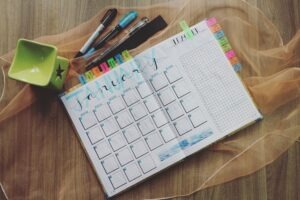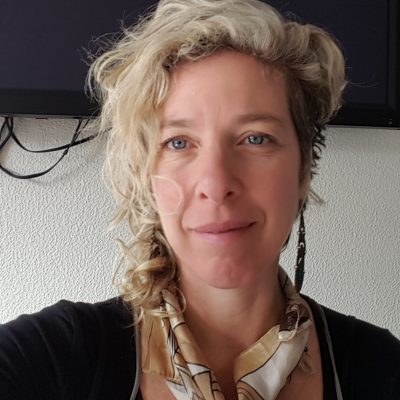 Amanda’s Story
Amanda’s Story
We all have different types of epilepsy, different versions of the condition and sometimes additional conditions compounding it that might make it a little more difficult to manage. No matter what, though, taking ownership of epilepsy management is important. We have a life that requires being more aware of ourselves physically and emotionally every day. This gives us the opportunity for a consciousness that some people never experience.
Though we all have different needs and schedules, I wanted to share mine and how taking responsibility helped me feel empowered.
Daily Life with Epilepsy
6:00 A.M. – Take medication.
6:30 A.M. – The time difference between when I take my medication and when I get up is crucial for me. I used to only have seizures in the first 15-30 minutes after waking up. While that is not the case anymore, it doesn’t change decades of habit. Like many of us, the regularity of timing our medications is also important, which kinda stinks on weekends when I don’t have to wake up early.
Morning – I am hyper aware of what my body is doing. If I drop my coffee when leaving a coffee shop, I assess whether it may have been a tremor, small seizure, if I just stumbled, or if I was holding too many things at once. If I jab myself in the eye with the mascara wand, I evaluate if that was that a tremor or I’m just bad at putting on makeup this early in the morning.
Daytime – I always have medication with me, keeping it in my purse. That way, if I decide to pick up groceries after work or meet for a visit with a friend, I have it with me. There is never a time that I don’t have my medication available to me. I might forget my wallet or phone, but never my meds. At my workplace, I keep a spare blouse and pair of slacks in case I trip and tear the pants or ruin my top from the blood on my fingers if I am lucky enough to have caught myself. Like a creepy haunting, I am never alone. Even if I have not had a seizure recently, I am always aware and prepared for those situations.
6:00 P.M. – Take medication.
Evenings – I love to run, and in my running belt I keep an evening and morning supply of medication, all of my emergency contact information as well as my prescriptions and allergies. Even though it’s somewhat cumbersome, I always have that belt, just in case. All of my friends have my emergency contacts, even if they have never met. I have to be super aware about the state of my body, but this self-assessment has been a benefit to me whether it’s comes to running or meeting up with friends.
9:00(ish) P.M. – My end of the day might be earlier than most, but it doesn’t feel inconvenient because I enjoy cozying up in my pajamas and reading in bed. And, of course, I have my medication with me.
It might be easier to exist without epilepsy. I don’t actually know anymore. What I know is the accountability and reliability of being responsible for taking medication twice a day. I trust in my ability to be dependable. What I know is how to assess my body for injuries, triggers, or changes. I trust that when I am running to know when to walk because something isn’t right, even if it has nothing to do with epilepsy. What I know is how to tell when a bad attitude is the result of regular restlessness or reactive to an event. I trust in my ability to solve that emotional state on my own, by reaching out to friends or by needing to speak to a neurologist.
How many positive things in our lives can we trust in because of epilepsy? I bet it’s more than expected. Epilepsy in everyday life gives us a personal awareness in ourselves. We have more to build upon because of it. It’s a foundation to who we are as long as we are willing to listen.









Leave a Reply